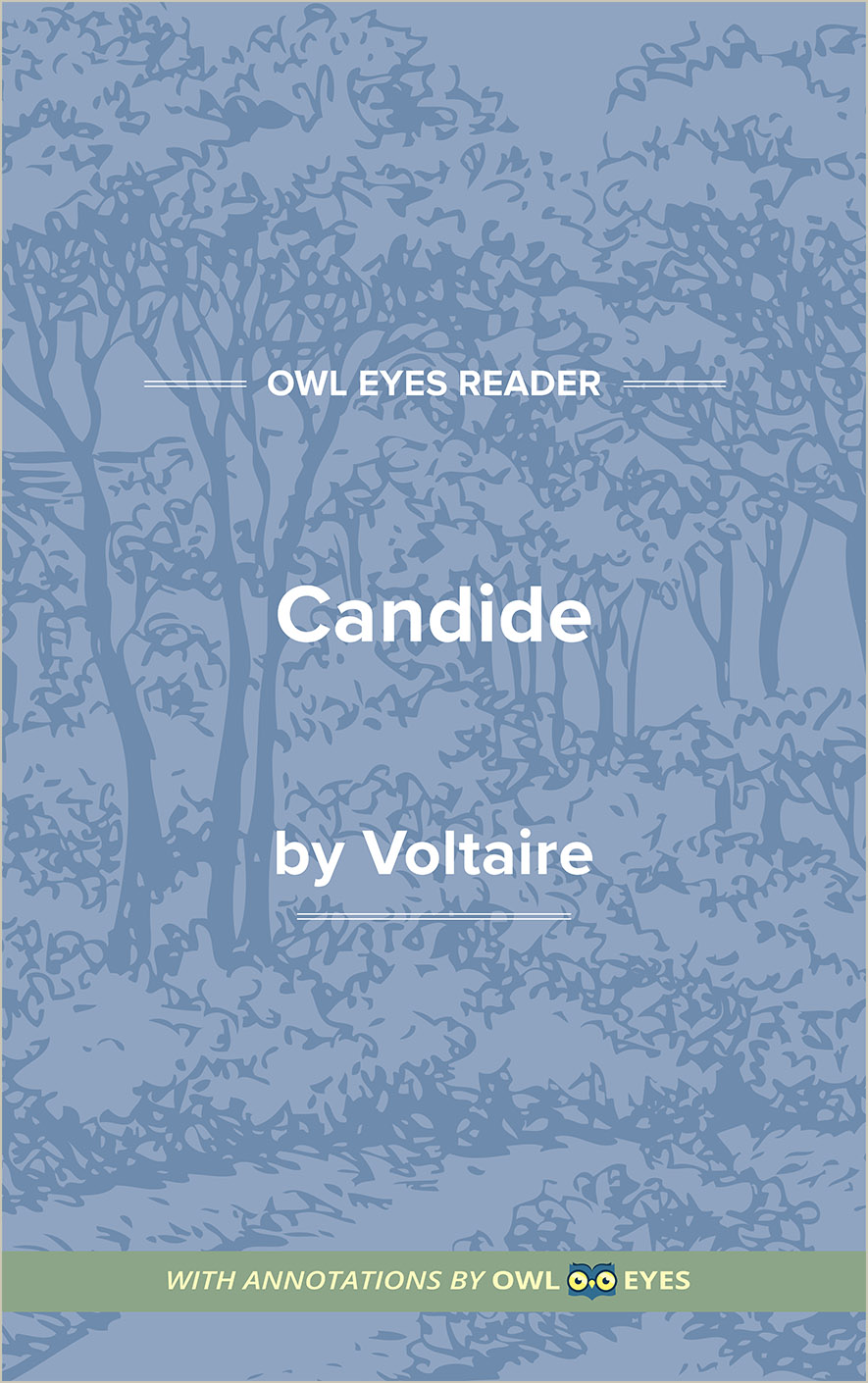Analysis Pages
Facts in Candide
Facts Examples in Candide:
Chapter I
🔒"Westphalia..." See in text (Chapter I)
Chapter II
🔒"balls of lead in his brain..." See in text (Chapter II)
"a few crowns..." See in text (Chapter II)
Chapter IV
🔒"know nothing of it..." See in text (Chapter IV)
Chapter V
🔒"Porto or Opporto..." See in text (Chapter V)
Chapter VII
🔒"our lady of Atocha, the great St. Anthony of Padua, and the great St. James of Compostella..." See in text (Chapter VII)
Chapter VIII
🔒"the Jewish Sabbath..." See in text (Chapter VIII)
Chapter IX
🔒"Cadiz..." See in text (Chapter IX)
"Galilean..." See in text (Chapter IX)
"since the Captivity in Babylon..." See in text (Chapter IX)
Chapter XI
🔒"the five prayers a day ordained by Mahomet..." See in text (Chapter XI)
Chapter XX
🔒"as well as in everybody else..." See in text (Chapter XX)
Chapter XXV
🔒"Raphael..." See in text (Chapter XXV)

